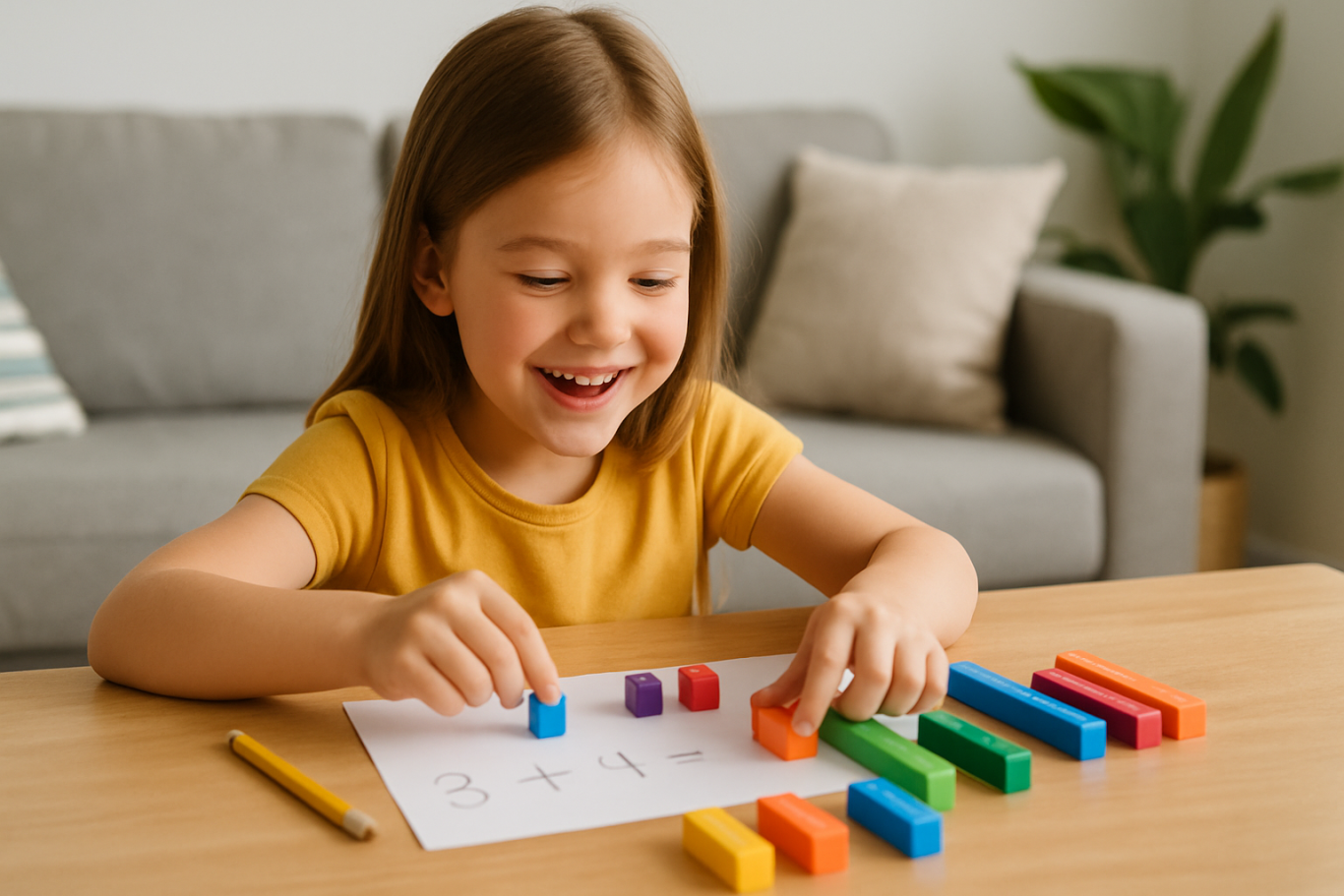Fun Ways to Help Kids Learn Math In 2025: Tips and Trick
For many kids, math can feel intimidating, boring, or just plain confusing. But with the right approach, it doesn’t have to be that way. When math is taught in a way that connects with how kids think and play, it can become one of their favorite subjects.
In this article, we’ll explore fun ways to help kids learn math that you can try at home. These ideas are designed to build confidence, make learning enjoyable, and show kids that math is more than just numbers and formulas.
Why Fun Matters in Learning Math

Every child learns differently. Some understand best through visuals, while others learn by doing. Unfortunately, math is often taught through drills or worksheets that don’t speak to every child’s strengths.
That’s why fun ways to help kids learn math are so important. When math is presented through games, stories, or real-life situations, it becomes more accessible and less stressful. It also helps kids build a positive attitude toward learning, especially for a subject that often gets a bad reputation.
Turn Learning into Playtime

One of the most effective ways to help children grasp math concepts is through play. When kids are having fun, they’re more likely to stay engaged and retain what they learn.
Games like number bingo, card games with math challenges, or interactive apps make learning feel like part of everyday life. You don’t need expensive tools either. What matters most is creating a space where children feel excited, not pressured, to explore math.
Simple Math Games to Try at Home

- Number Card Challenge
Use regular playing cards to practice addition or subtraction. Flip two cards and have your child call out the total. Make it a race to keep things fun. - Hopscotch Math
Draw a hopscotch board and add math problems to each square. Ask your child to solve the problem before hopping on. - Math in the Kitchen
Cooking is full of measurement and timing. Let your child help measure flour, count spoonfuls, or figure out how many cookies each person gets. - Toy-Based Counting
Use building blocks or toy cars to teach grouping, multiplication, or division. It’s especially helpful for visual learners.
All these activities offer fun ways to help kids learn math without making it feel like a school assignment.
Your Role as a Parent

Many children struggle with math not because they can’t do it, but because they believe they can’t. That belief often comes from pressure, fear of mistakes, or a lack of confidence.
As a parent, you can shift this mindset by encouraging effort and curiosity. Celebrate progress, no matter how small. With fun ways to help kids learn math, your support matters just as much as the method.
Use Technology in a Positive Way

Today’s technology offers tons of educational tools designed specifically for children. There are countless apps and websites that teach math through stories, games, and interactive challenges.
Platforms like Timedoor Academy offer structured online classes that combine fun with effective learning. With the right tools, fun ways to help kids learn math become easier to find and apply in daily life.
Make Math Social

Kids often enjoy learning more when they can do it with others. Consider setting up math challenges between siblings or friends. You can also try a family game night with a math twist.
Learning with others creates a sense of excitement and reduces pressure. It’s another fun way to help kids learn math while also building teamwork and communication skills.
Make Math Part of Everyday Life

Math is everywhere. It’s in the money you use at the store, the recipe you follow for dinner, and the clock you check every morning. Involving your child in these daily tasks can make math feel useful and natural.
Let your child count change, estimate grocery costs, or track time before bedtime. When kids see math in action, they understand that it’s a skill, not just a subject.
Let Kids Find What Works for Them

There is no one-size-fits-all method in learning. Some kids love singing math songs, while others enjoy solving puzzles. The key is to let your child explore different ways and figure out what helps them feel most confident.
Fun ways to help kids learn math often come from trial and error. Give them room to experiment, and be there to cheer them on throughout the process.
Make Learning Math Fun with Timedoor Academy
If you’re looking for guided, interactive math learning that your child will actually enjoy, Timedoor Academy offers online classes designed especially for kids. The lessons are built around engaging activities that teach core math skills in fun and creative ways.

Ingin tahu detail program?
Try a free class today at Timedoor Academy and help your child discover fun ways to learn math at home with confidence and joy.